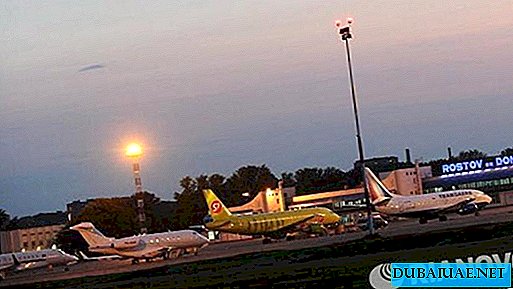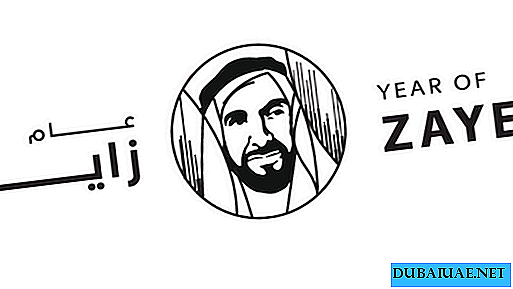Text: Helena Kryukova
Single master plan
Today it’s not a secret for anyone that the Government of Dubai by all means seeks to justify the unofficial status of Dubai as a “city of the future." Any, even the most daring projects here receive not only approval, but also direct state support, and state structures often come up with initiatives that are not inferior, and often ahead of the most daring ideas of developers. But as the futuristic ship of the future, called Dubai, moves forward, the main features of the course that it should follow begin to emerge. The fantastic projects of mega-complexes that arise here and there, of course, amaze the imagination, but for successful development all this must be brought into the system. What, in fact, are the governing structures intending to do, planning to present an already more or less clear plan for the development of the city as a whole.
The main emphasis in the development of the city is now being made on increasing the transparency of master plans, the interaction of various industries, off-plan real estate sales schemes, and the understanding of all the nuances of the market for investors. But developers will not only be obligated, they will be helped. To this end, it is planned to develop a whole package of various incentive measures that will help together achieve the goals set by the government.
For example, in the affordable housing sector, which has been talked about in the Dubai real estate market over the past months. Ahmad Bukhash, head of Dubai’s Creative Industrial Cluster Development Office, set up on the initiative of Sheikh Mohammed bin Rashid Al Maktoum, vice president, prime minister of the UAE and ruler of Dubai, said in a recent interview that the future lies with the close cooperation of private construction companies and the emirate’s leadership. You need to build, but just what the city really needs.
Most of the major developers have recently paid attention mainly to the construction of projects in the luxury segment, leaving unattended, in particular, the placement of maintenance personnel or low-income expatriates. Therefore, it is not surprising that during the period of price correction, it was the luxurious housing sector that first felt it. “Today it is very important to create a strong middle link connecting the upper and lower price segments of the Dubai real estate market,” Bukhash noted, “to create an architectural typology for projects of various kinds. Not far off is the time when there will be no separate, albeit large, master plans "Dubai will develop according to one, single master plan."
Airbags
As Dubai develops, the need becomes apparent not only in standardizing the approach to urban development, but also in price adjustments. This topic, perhaps, can not be avoided in any discussion of real estate in Dubai. And the good news is that the current period of price decline seems to be the main sign of the stabilization of the course taken by Dubai. Yes, the price reduction promised by experts for 2015 can be from 10 to 20% by the end of the year, but this is exactly what the market needed, they say with one voice.
For example, a recent report by Standard & Poor's, a reputable rating agency, says that this time both the developers themselves and the market as a whole are much better prepared for the expected price reduction than it was, say, in the crisis year of 2009. We can say that the market even prepared for this case a kind of "airbag". They became not only the diversification of the profit structure by most of the major players in the Dubai real estate market, the variety of offers and the stability of the balance of capital flows on the accounts of developers. More important factors are external circumstances independent of the will of the participants, namely, the weak dependence of the Dubai economy on the "oil needle", as well as a large percentage of real estate investments from foreign investors. Non-oil trading companies contribute a lot to Dubai’s GDP, so they can easily compensate for the lack of demand from oil companies that have lost some of their shine, if any, says the Standard & Poor's report.
Another "airbag" for the Dubai real estate market, "a fundamental supporting factor for Dubai housing prices and rental property for the next five years," as Standard & Poor's put it, will be the growth of the population of Dubai. Standard & Poor's experts predict an increase in the number of residents within 5-6% over the next two years for this emirate, and about 7-8% for the same period for Abu Dhabi. According to estimates, by 2020, the population of Dubai should reach 3 million people.
Time to invest
The most critical, in our opinion, factor in the further successful development of the real estate market in Dubai is the issue of foreign investment. In the first quarter of this year alone, foreign investors invested nearly US $ 1.5 billion in Dubai real estate.
At the same time, the forecast for the future looks even more optimistic: 68% of investors surveyed by well-known analytical company Franklin Templeton believe that real estate in the UAE will maintain its status of the most sought-after asset over the next 10 years and are going to continue to invest substantial funds in this sector. Franklin Templeton's global study covered 23 countries and 11,500 investors worldwide.
As a result, it became known that the purchase of real estate in the UAE is one of the three main areas of investment among global investors.
And, despite the fact that such investments are traditionally considered to be long-term in terms of returning funds and generating income, 73% of those polled nevertheless hope to start earning income from their investments within two years. Such findings of the researchers are confirmed by analysts at the leading consulting company Knight Frank. In a recent report, company specialists noted that 40% of owners of large capital in the UAE are going to invest in real estate. On average, 35% of all investment packages of the largest UAE investors are in real estate. At the same time, 60% of these investors last year invested in real estate, mainly in the emirate of Dubai.
And for 2015, the forecast looks even better: 60% of investors are going to leave their investment in real estate, and another 40% are going to invest new funds in this asset. At the same time, the market has a large share of investors with so-called large private capital exceeding US $ 1 million and very large private capital exceeding US $ 30 million. These investors are primarily interested in residential real estate, followed by second and third places The popularity of investments is followed by offices, retail and hotel real estate.
The UAE attracts wealthy investors with three main advantages: living standards and health care (87% of respondents said this is the most important factor), security (67%) and political stability (67%).
Investors are easy to understand, because rental income in Dubai is still one of the highest in the world. According to the Global Property Guide, gross margin on Dubai property investment today ranges from 5.87% to 7.21%, depending on the size of the apartment. At the same time, apartments of a smaller area traditionally bring more income, since they are in high demand. For comparison, real estate investment income in one of the fastest growing cities in the world in Hong Kong is 2.82%, in India 2.22%, in Singapore 2.83%, and finally, in London, housing investment income or commercial real estate may be in the order of 2.72-3.20%. Renting small apartments in Dubai can bring their owners an income of up to 22% per square meter per month, and apartments of a larger area - up to 21% per square meter per month.
In conclusion, it is worth noting that Dubai has been repeatedly recognized by the leading sociologists of the world as the "happiest" country in the Middle East. In a sociological sense, happiness is understood as life expectancy and satisfaction with it, a basic level of quality of life and well-being.
From this point of view, the UAE and especially Dubai deserved special mention in the UN report on the level of happiness in the world of World Happiness Report 2015. The development plan for Dubai until 2021 implies the happiness of the people of the emirate as its main goal, national policy as such is aimed at its immediate achievement. which is not typical for all countries. The level of medical care, the level of satisfaction with the interaction with the environment, the level of safety and, importantly, the ability to live in comfortable conditions, high-quality and convenient housing - all this makes the UAE a country attractive to many expatriates. And if it comes to choice, then, at least from the point of view of real estate acquisition, experts call today the most favorable time for integration into the UAE.
For more information about acquiring and managing real estate in Dubai, contact IMEX Real Estate at tel. in Moscow +7 495 5100008, toll-free number in the UAE 800-IMEX (800-4639) or by sending a request by e-mail [email protected].








